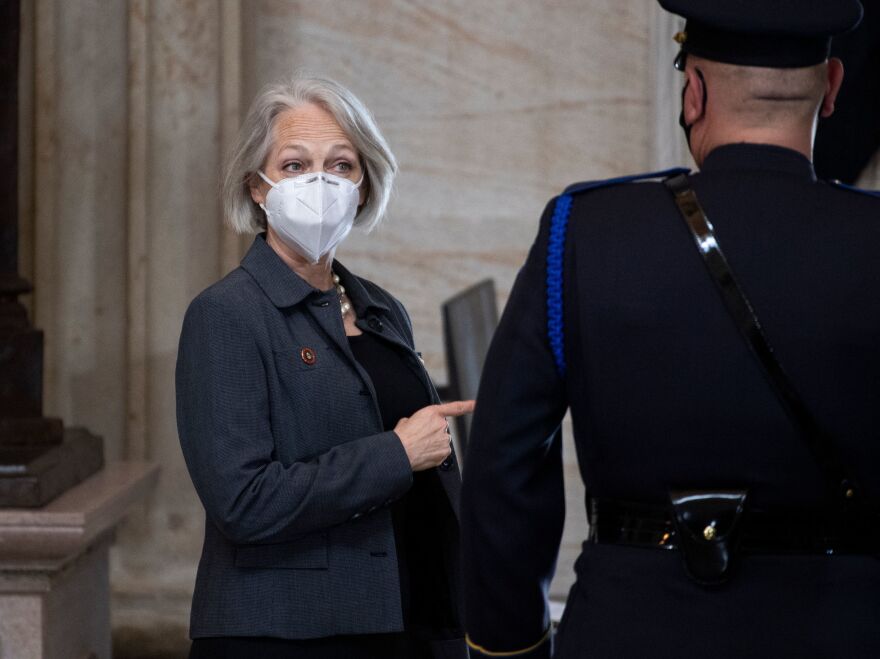Updated April 15, 2021 at 9:10 AM ET
"Aghast, appalled and very angry."
Those are the first words that come to mind when Karen Gibson, newly appointed sergeant-at-arms for the U.S. Senate, reaches to explain the feeling of watching a crowd of rioters storm the Capitol building.
"I've deployed to combat zones, I've studied unstable countries, monitored them closely, and I never thought I would see American citizens attacking — physically attacking — the center of our democracy," Gibson says in an interview with NPR's Morning Edition.
On Jan. 6, Gibson was a retired intelligence officer and retired Army lieutenant general, having served more than three decades with the U.S military. But she says watching the riot unfold, she felt called to help. She had the right experience and credentials, and in a pandemic that kept most experts at home, she was already in Washington, D.C.
Gibson volunteered to work with a task force led by retired Lt. Gen. Russel Honoré to review the events of Jan. 6. She was approached by Senate Majority Leader Chuck Schumer about taking over the sergeant-at-arms job after her predecessor resigned in the wake of the Capitol attack.
Another critical review of the events of the 6th is scheduled to be presented to the U.S. House of Representatives on Thursday, further underscoring the need for meaningful change in security. Gibson says that security change is needed but must be balanced with access.
"We could lock down the building," she says. "We could keep the three-mile fence up with razor wire and National Guard. But that defeats the purpose of having the people's house that is available and open to constituents, to allowing school groups and tourists to come and, you know, frankly, marvel at the beauty and the history of this building."
Some of the Capitol's security secrets have been in place for a long time. Gibson points to what is essentially an anti-tank barrier around the Capitol that would prevent an attack from vehicles that has been in place since 2001 after the Sept. 11 attacks. But she recognizes that information security, and unpredictable "lone actors" present complex security risks that are harder to plan for.
"Lone actors are definitely harder to predict, potentially harder to identify — particularly if they haven't done anything to communicate their desires in advance," she says. "And it is easier for a single individual to defeat security measures than for a mob of thousands that you see walking towards the Capitol."
But the task of physical security at the Capitol is a shared burden. Gibson commands a staff of about 900 people who attend to all sorts of things that allow the Senate to run on a day-to-day basis: "Everything from custodial support and parking attendants to the press gallery ... doorkeepers, the appointments desk, the telephones, the IT infrastructure, cybersecurity."
Gibson says she will work closely with the Capitol police and with her counterparts in the House of Representatives to develop a comprehensive plan to keep the Capitol, the seat of American democracy, safe.
Copyright 2021 NPR. To see more, visit https://www.npr.org.






